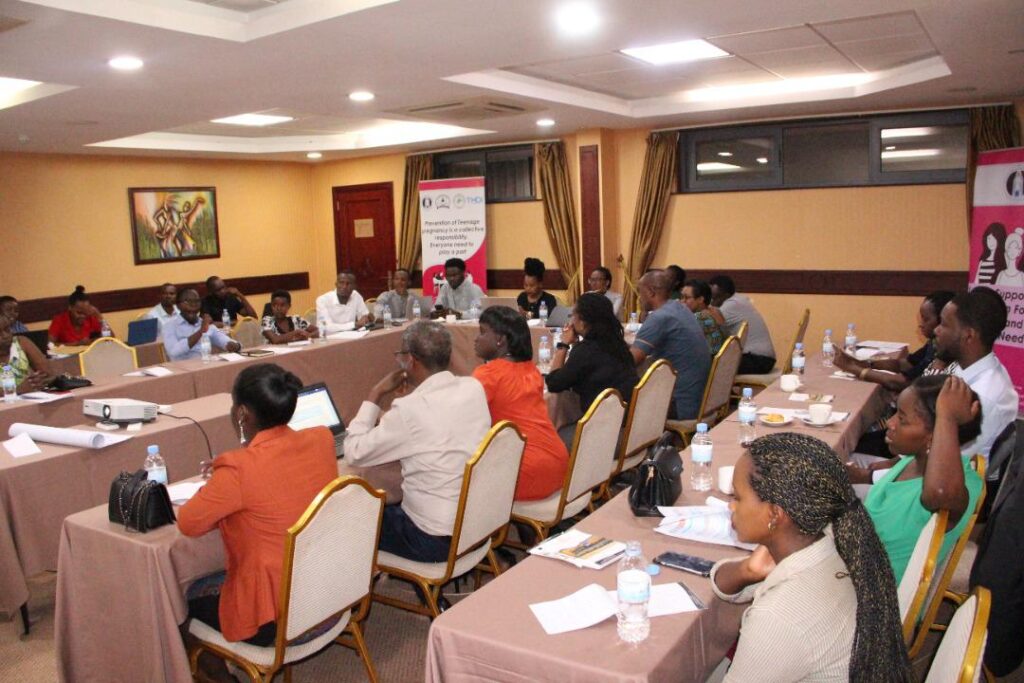By Charles Ndushabandi.
The executive secretary of Rwanda NGOs forum on HIV/AIDS and Health Promotion Ms Kabanyana Nooliet has said teens and youth in general still have a number of serious problems that all stakeholders ought to work together to find solutions for.
Kabanyana made the remarks at the sidelines of a workshop aimed at enhancing CSOs advocacy capacity on ASRHR policies/budgets and formal CSOs participation mechanisms and their effectiveness. The workshop was organized by Rwanda NGOs Forum on HIV/AIDS and Health Promotion under the solutions for supporting healthy adolescents and rights protection project.
She said that for the Member of Parliament to suggest that authorities arrest and punish those that impregnate underage girls are wrong and we shouldn’t allow what they are suggesting.
“Our children must be protected. I completely disagree with people suggesting the arrest of those who impregnated our girls because we will have already wasted and destroyed their future by using her as bait to get the culprit. This is not different from using meat to get an eagle,” Kabanyana said.
“What we are and must advocate for collectively is how we are to protect our children so that they may continue to have opportunities to study just like all other privileged children since they can also be leaders of the future,” she added.
Kabanyana says that the members of the civil society will look together to find solution for what can be done to end teenage pregnancies a thing that is denying a girl a future
“What our leaders have to understand is that reproductive health is not only about family planning, it also includes the provision of services that include sex education, counseling among others,” she noted
She says the laws prohibiting young girls from accessing these services denies them their constitutional right to live and have a good life.
One of the participants, Ndagijimana Serge, a medical doctor at Kabgayi Hospital says that teenagers should be given reproductive health services because they are among the ones who don’t often get tested for HIV infection and other infections.
“Most of the teens and some older people are afraid to take medication, and research shows that there has been an increase in HIV infections between the ages of 15-25 and 25-35 high,” Ndagijimana said.






